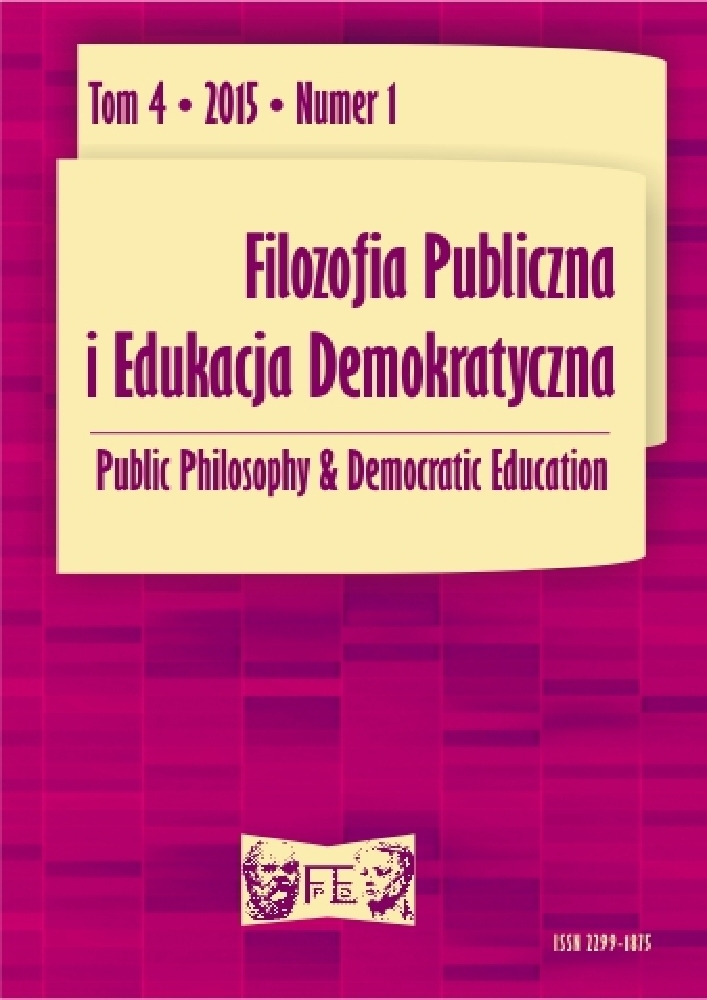Abstrakt
Implementation of human rights is often criticized because it is perceived as being imposed on the rest of the world. In this case, human rights start to be seen as a sole abstraction, an empty word. What are the theoretical arguments of these critics and can we determine any historical grounds for them? In this paper, I will try to point at similar critics after the French Revolution – like that of the Historical School and Hegel – and try to show if some of these critics are still relevant. And I will compare these critics with contemporary arguments of cultural relativists. There are different streams and categorizations of human rights theories in today’s world. What differentiates them is basically the source of the human rights. After the French Revolution, the historical school had criticized the individuation and Hegel had criticized the formal freedom which was, according to him, a consequence of the Revolution. In this context Hegel drew a distinction between real freedom and formal freedom. Besides the theory of sources, the theories of implementation such as human rights as a model of learning, human rights as a result of an historical process are worth attention. The crucial point is about integrating human rights as an inner process and not to use them as a tool for intervention in other countries, which we observe in today’s world. And this is the exact point why I find the discussion of the sources more important. This discussion can help us to show how the inner evaluation of a society makes the realization of human rights possible and how we can avoid the above mentioned abstraction and misuse.
Bibliografia
Adorno, Theodor W., Erziehung zur Mündigkeit, Frankfurt am Main: Suhrkamp, 1970.
Apel, Karl-Otto, “Plurality of the Good? The Problem of Affirmative Tolarence in a multcultural Society from an Ethical Point of View”, Ratio Juris, Vol. 10, Is. 2, 2002 (199 213).
Barreto, José Manuel, “Ethics of Emotions as Ethics of Human Rights: A Jurisprudence of Sympathy in Adorno, Horkheimer and Rorty”, Law and Critique, Vol. 17, 2006 (93 112).
Binoche, Bertrand and Jean-Pierre Cléro, Bentham contre les droit de l’homme, Paris: Puf, 2007.
Bouton, Christophe, Le procès de l’histoire. Fondements et postérité de l’idealisme historique de Hegel, Paris: Vrin, 2004.
Brauer, Oscar Daniel, Dialektik der Zeit, Untersuchung zu Hegel’s Metaphysik der Weltgeschichte, Stuttgart-Bad Cannstadt: Fromann-Holzboog, 1982.
Brunkhorst, Hauke, “Hegel und die Französische Revolution. Die Verzichtbarkeit der Restauration und die Unverzichtbarkeit der Revolution” in Die Ideen von 1789. Frankfurt am Main: Suhrkamp, 1989), pp. 156-174.
Brie S., Der Volksgeist bei Hegel und in der historischen Rechtsschule, Berlin, Leipzig: Dr. Walther Rothschild, 1909.
Donnelly, Jack, “The Relative Universality”, in Human Rights Quarterly, Vol. 29, No. 2, 2007 (281-306).
Donnelly, Jack, Universal Human Rights in Theory and Practice, Cornell University Press, Ithaca 2013.
Douzinas, Costas, “Identity, Recognition, Rights or What Can Hegel Teach Us About Human Rights?”, Journal of Law and Society, Vol. 29, No. 3, 2002 (379-405).
Dufour, Alfred, Droits de l’homme. Droit naturel et histoire, Paris: Puf, 1991.
Gauchet, Marcel, La democratie contre elle-meme, Paris: Gallimard, 2002.
Gérard, Philippe, L’esprit des droits. Philosophie des droits de l’homme, Bruxelles: Saint-Louis, 2007.
Gierke, Otto, Die historische Rechtsschule und die Germanisten, Berlin: Gustav-Schade, 1903.
Hegel, Georg Wilhelm Friedrich, Rechtsphilosophie. Ed. Karl-Heinz Ilting, 4. Band, Stuttgart-Bad Cannstadt: Fromann-Holzboog,1974.
Hegel, Georg Wilhelm Friedrich, Grundlinien der Philosophie des Rechts, Frankfurt am Main: Suhrkamp Verlag, 1986.
Hegel, Georg Wilhelm Friedrich, Enzyklopädie der philosophie der Wissenschaften III, Frankfurt am Main: Suhrkamp, 1970.
Jouanjouan, Olivier, Une Histoire de la pensée juridique en Allemagne (1800-1918), Paris: Puf, 2005.
Honneth, Axel, La lutte pour la reconnaissance, Paris: Cerf, 2002.
Honneth, Axel, “Atomisierung und Sittlichkeit. Zu Hegels Kritik der Französischen Revolution”, Die Ideen von 1789. Frankfurt am Main: Suhrkamp, 1989, pp. 174-186.
Kantorowics, Hermann, “Volksgeist und die historische Rechtsschule”, Historische Zeitschrift, Bd. 108, No. 2, 1912.
Klein, Philip V., Hegel and the other, State University of New York, New York 2005.
Knox, T.M. (Ed.), Hegel’s philosophy of right, Oxford University Press, Oxford 1967.
Kojève, Alexandre, Introduction to the reading of Hegel, Cornell University Press, Ithaca 1980.
Kojève, Alexandre, Hegel Felsefesine Giriş, İstanbul: Yapı ve Kredi Yayınları, 2001.
Kuzgun, Yıldız. İnsan Hakları ve Eğitim, İnsan Haklarının Felsefi Temelleri. Ed. Kuçuradi, I., Ankara: Türkiye Felsefe Kurumu, 1980, pp. 157-163.
Mahrlein, Christoph, Volksgeist und Recht: Hegel’s Philosophie der Einheit und ihre Bedeutung in der Rechtswissenschaft, Königshausen & Neumann, 2000.
Meder, Stephan, Rechtsgeschichte, Köln: Böhlau Verlag, 2005.
Perry, Michael J., The Idea of Human Rights, New York: Oxford, 1998.
Rehberg, August Wilhelm, Recherches sur la révolution française. Paris: Vrin, 1998.
Reghaby, Heydar, Revolutionäre und konservative Aspekte in der Philosophie des Volksgeistes, Berlin: Inaugural-Dissertation, 1963.
Ritter, Joachim, Hegel und die französische Revolution, Frankfurt am Main: Suhrkamp Verlag, 1965.
Rorty, Richard, “Human Rights, Rationality and Sentimentality”, The Politics of Human Rights, ed. Obrad Savić, London: Verso, 1999, pp. 167-177.
Rosenbaum, Wolf. Naturrecht und positives Recht, Darmstadt: Hermann Luchterhand Verlag, 1972.
Savigny, Carl. Vom Beruf unserer Zeit für Gesetzgebung und Rechtswissenschaft, Heidelberg, 1840.
Shestack, Jerome J. “The philosohic foundations of human rights”, Human Rights Quarterly, Vol. 20, No. 2, 1988 (201-234).
Stojanov, Krassimir “Education as Social Critique: On Theodor Adorno’s Philosophy of Education”, in New College, Oxford 2013, http://www.philosophy-of eucation.org/uploads/2013%20Conference/Papers/Stojanov.pdf, (accessed November 10, 2013).
Taylor, Charles, Multiculturalisme, Différence et démocratie, Paris: Aubier, 1994.
Licencja
Prawa autorskie (c) Autorzy zachowują prawa autorskie i prawa do publikacji swoich artykułów w tym czasopiśmie, przyznając czasopismu prawo do ich rozpowszechniania na warunkach CC BY-NC-ND 4.0
